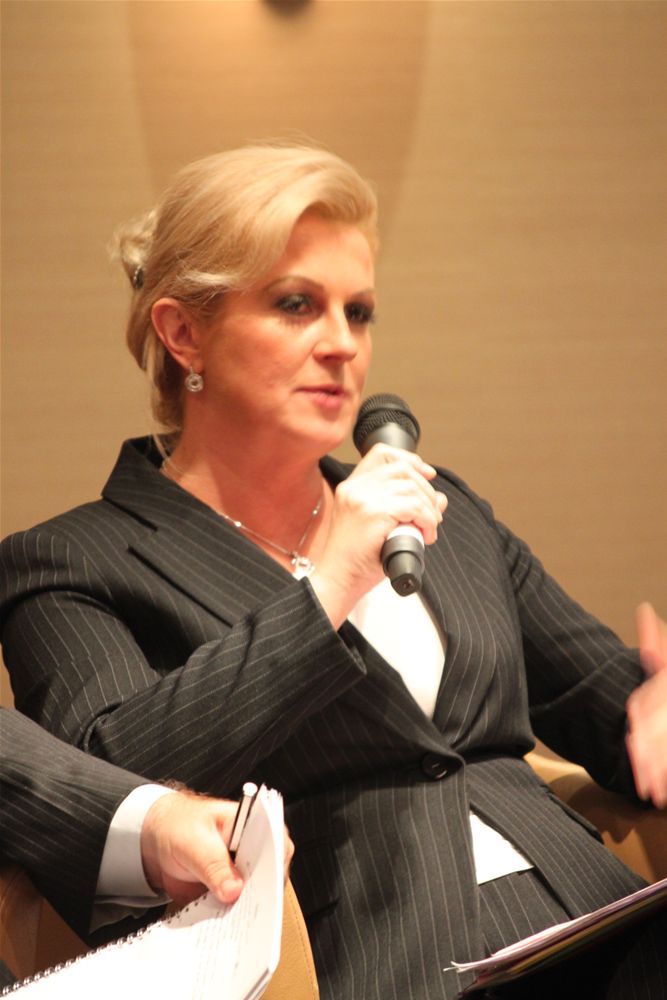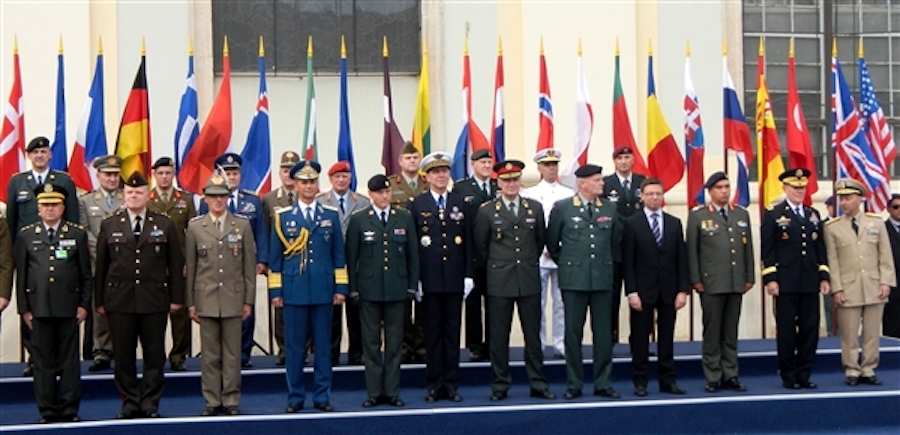[captionpix align=”center” theme=”elegant” width=”600″ imgsrc=”http://rt.com/files/news/1f/79/c0/00/taliban-2.jpg” captiontext= “Afghans mourn at the grave of victims of a Taliban attack. (Reuters/Stringer) “]
The United States announced Monday that it would hold direct peace talks with the Taliban in Qatar, aimed at achieving a political solution to the 12 year-old conflict in Afghanistan. Mali has just concluded a peace deal with the National Movement for the Liberation of Azawad (MNLA), a major opponent in their civil war.
To get the Taliban to the table, the US reportedly had to drop its condition that the hardline group renounce Al-Qaeda. The MLNA (a Tuareg rebel front) has made it clear they are settling for ‘autonomy’ within Mali, for now, putting in question the durability of the peace deal.
When, if ever, is it acceptable to ‘negotiate with terrorists’ and non-state aggressors and at what price? It’s a thorny question, but one that NATO and its allies are likely to grapple with more and more in the future.
Mali: When it’s for ‘humanitarian’ purposes
Refusing to negotiate with rebel groups can mean losing humanitarian access in a conflict or post-conflict situation, worsening conditions on the ground. At the same time, agreeing to deliver aid in rebel-controlled areas on their terms can change the way it gets delivered, calling into question its humanitarian nature. Insurgent groups can ensure their supporters among the population receive help first or could even take the supplies directly to their fighters once they are delivered. Assistance might, in the end, strengthen one or another warring party. [captionpix align=”right” theme=”elegant” width=”300″ imgsrc=”http://www.france24.com/en/files/imagecache/france24_169_large/article/image/mali-touareg-m.jpg” captiontext= “Tuareg terrorists.”]
In order to deliver aid to Tuareg rebel-held northern Mali in 2012, the organizationCri du Coeuraccepted escorts from rebels. Their supplies were reportedly delivered to Malians under the watchful eye of the MNLA and a group of community members. In the end, some people who needed assistance received it, but it was rebel forces who determined how it was handed out.
When rebel groups control the distribution of assistance under the guise of guiding and supervising it, it’s difficult to call it humanitarian. One of the core tenets of humanitarianism is neutrality, and so even indirect assistance to a particular party in a conflict is questionable at best. Nevertheless, negotiation yielded ‘humanitarian’ access, and so it’s hard to deny that it was justified.
Afghanistan: When it’s the only way
The present conflict in Afghanistan has lasted over 12 years. Before that, a coup in 1978 followed by a full-scale Soviet invasion in 1979 kicked off more than 30 years of instability and war. Each bout of violence has set the country back on economic and social development, which then delays the peace process in a vicious cycle.
The war has been costly for all members of the coalition. A recent book claims the Afghan war will cost each British household £2,000, £15 million per day since 2006. The combined costs of the Afghan and Iraq conflicts will be at least $4 trillion, claims a recent Harvard study. Canada has spent tens of billions on the conflict and suffered among the highest casualties.
Contrary to popular perceptions of Afghanistan as a perpetual warzone, the country is also making huge strides. The economy has grown from $2 billion (2001) to $20 billion (2012) and record numbers of children are in school. These are strong steps in economic and social development, but they need to be accompanied by political legwork.
If ISAF forces are to stick to their withdrawal schedules, they will need to ensure a durable political solution is forged before they leave. That means negotiation between all parties, including the Taliban. Despite the bad taste it may leave in some people’s mouths, there isn’t another option.
Cutting a deal in Doha
Getting the various parties to talk is not going to be easy, reaching an agreement even less so, and the concessions on all sides will likely be quite significant. The willingness to compromise on the part of key players like Pakistan, the Karzai administration, ISAF and the Taliban itself, will largely determine the outcome of talks.
On one hand, there is the issue of the Afghan government involvement. In the past the Taliban have not been open to negotiation with the Afghan government, seen as puppets of the American administration. Karzai has resisted efforts to negotiate without the Afghan government playing the lead role, and was angered this week by the supposed granting of political recognition to the Taliban in Doha. Karzai will need to be at the table, as agreements that aren’t Afghan-owned are unlikely to last.
Pakistan, although it has expressed support for the process, will need to be completely on board. While Pakistan is not always the ideal partner, it’s important to remember that their long-term interests lie in a stable Afghanistan. The prospect of lasting peace also provides an opportunity to re-patriate some of the estimated 1.6 million Afghan refugees. A settlement with the Afghan Taliban may even set a precedent for talks with their own Taliban.
Trust between parties is the largest issue, and for good reason. There are fears the Taliban could use representation in Qatar for fundraising or to buy time to re-group. These worries are fed by a recent insurgent ambush near Bagram Air Base which killed four American soldiers, hours after the Doha office opened.
The ambush could be a strategic move to demonstrate strength before negotiations, or more worrisome, a sign of weak control over fighting elements by the Taliban leadership. The talks will apparently be led by ‘moderates’, but the strength of their hold on the armed branches of the movement is not known. For example, while the Haqqani network is represented by the Taliban negotiators in Doha, if a settlement does not appease them they may not, as a faction, respect a deal.
A successful negotiation will prove very challenging. It will need to include: Involving the Afghans in a leadership role, discerning the sincerity and ability of the Taliban to negotiate, crafting a settlement attractive to Pakistan, and building trust between all parties. It may take years of painstaking negotiations – years ISAF withdrawal dates in 2014 do not provide. Negotiators may have to make major concessions, such as accepting the Taliban’s rejection to forsake Al Qaeda, to reach a deal within the time they have. As it stands now, the Taliban have time on their side.
Between a Rock and a Hard Place
Making a deal with rebels and insurgent networks poses some serious ethical questions and it may not be the first choice of policy-makers for making peace. Negotiation can warp the intentions of humanitarian assistance by letting non-state aggressors use it to their advantage. It can also give insurgents time to re-arm and re-finance, or extract key concessions from negotiators. However, as the Malian and Afghan examples show us, sometimes it’s just the only option given limited resources and the complex workings of terrorist organizations.




